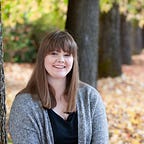Volunteers propagate native plants to support habitat restoration around Eugene
Eugene, Ore. — Community volunteers gathered at the Eugene Native Plant Nursery on Friday, Jan. 21. The weekly work party helps to grow native plants and seeds for habitat restoration.
The Native Plant Nursery, a community garden within Alton Baker Park, acts as a propagation project for native plants and seeds. The plants originate from all habitats within the borders of Eugene.
“Our park system is vast and it’s wonderful, but it is in great need in some locations of restoration, meaning getting invasive species out, and natives back in,” said Kelsey Irvine, the Native Plant Nursery and Natural Areas Volunteer Coordinator.
The City of Eugene and its staff hold work parties every Friday afternoon to support the restoration of habitats within city limits, according to the event listing.
This week’s activities involved weeding seedbeds and collecting seed from dried yarrow. Volunteers knelt down on foam pads and took spades against pesky sprouts — a calming and significant process.
In a shed nearby, two volunteers rubbed dried sprigs of yarrow against wooden blocks wrapped in wire fence. Yarrow seeds fell out of their flowers into a box lined with the same wire.
“Once we have all of our seed cleaned, we’ll be able to plant them at various restoration sites around the city and within the nursery for next year,” said Erika Avera, a graduate student at Oregon State University and assistant to the nursery’s Volunteer Coordinator.
Eugene’s Native Plant Nursery provides clean seed and small plants for 45 active restoration projects in five different habitat types, according to Irvine.
Plants that are versatile in all environments or specific to the Eugene habitat are grown and stored at the nursery until they are distributed.
The nursery presents many alternative benefits for the City of Eugene as well.
On one hand, the nursery decreases the price of restoration projects because the seed is used from the nursery instead of being purchased from elsewhere, according to Irvine.
“It’s nice to know that we can help provide as much as we do and can,” said Irvine.
Last year, the nursery produced up to 45 pounds of seed to put towards urban restoration. The nursery is expected to have larger yields in the future, due to more seed beds being built, said Irvine.
On the other hand, the nursery offers the chance for community members to make a difference within their lived environment.
Mary Huynh-Watkins, a Eugene community member and Native Plant Nursery volunteer, said, “for many years, I walk around my city parks, and I saw the invasive plants growing. I really wanted to do something about it.”
For some, it’s the hands-on application of environmental theory and practice that entices volunteers.
“[The plants] are important native species that we need to maintain because it has a net beneficial effect on the ecosystem,” said Ben Brodka, an environmental studies student at the University of Oregon and first-time volunteer at the nursery.
For others, it’s the chance to get away from it all.
“It can be a place where people feel really zen, because they have some time to themselves, or it can be the one social outing they have a week,” said Irvine.
The Native Plant Nursery was built in 2006 as a part of the City of Eugene’s urban restoration project, according to the Native Plant Nursery website. Volunteers and staff from the Eugene community built the nursery from the ground up, starting with seedbeds and storage sheds.
City ecologists and staff then collected the plants/seeds from habitats around Eugene. To this day, the same species are being used to restore habitats.
“We’re really interested in the DNA being pure per habitat,” said Irvine. “Each of these [plants] are very specific to a 20-mile radius of Eugene.”
As a result of years of hard work, the Eugene community developed a renewable and local form of plant and seed production. “Every night I can sleep well, because I know I did something positive for the community,” said Irvine.
The Native Plant Nursery gatherings open a gateway into our environment with simple work while catering to the needs of Eugene’s overall ecological success.
If you would like to get involved in this wonderful opportunity to volunteer and support the Eugene community, stop by the Native Plant Nursery at 538 Day Island Rd, Eugene, 97401, every Friday from 1:00-4:00 p.m. Check the Eugene Event Calendar for more specifics.
